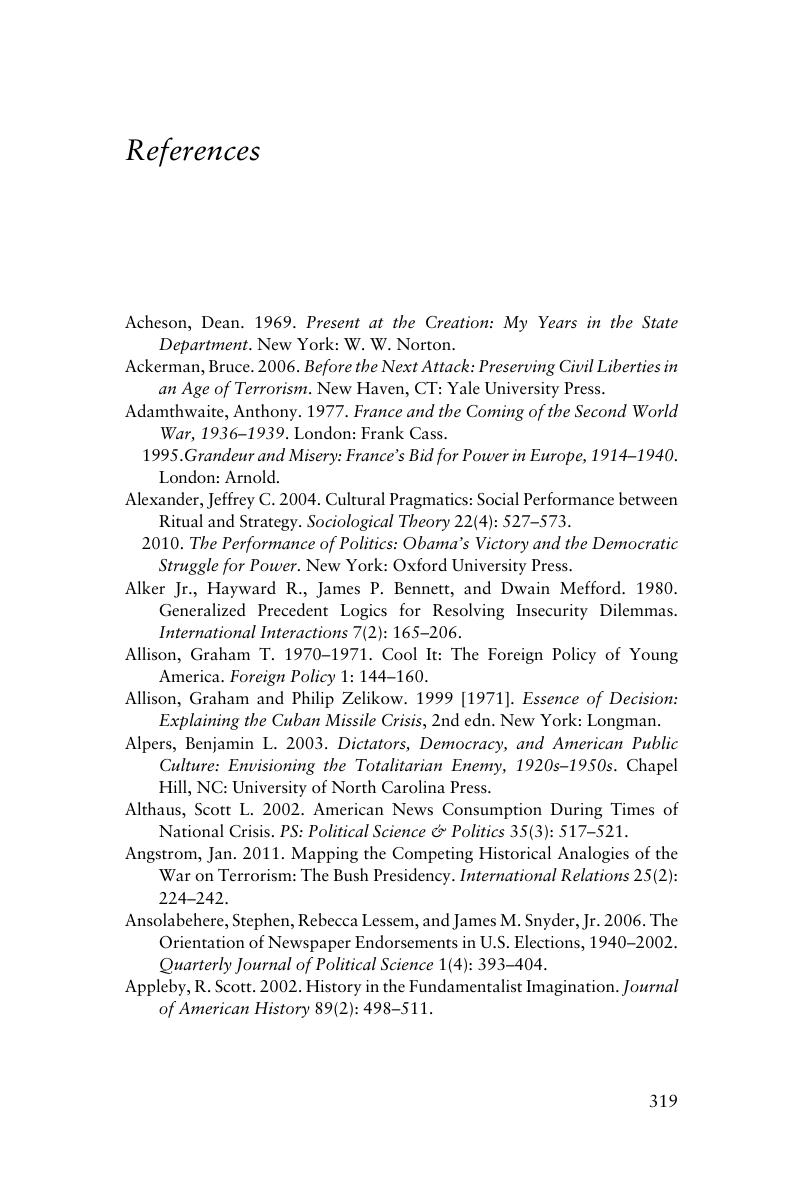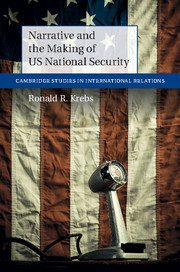Book contents
- Frontmatter
- Dedication
- Contents
- List of figures
- List of tables
- Acknowledgments
- 1 Narrating national security
- PART I Crisis, authority, and rhetorical mode: the fate of narrative projects, from the battle against isolationism to the War on Terror
- PART II Narrative at war: politics and rhetorical strategy in the military crucible, from Korea to Iraq
- Conclusion
- Appendices
- References
- Index
- Cambridge Studies in International Relations
- References
References
Published online by Cambridge University Press: 05 December 2015
- Frontmatter
- Dedication
- Contents
- List of figures
- List of tables
- Acknowledgments
- 1 Narrating national security
- PART I Crisis, authority, and rhetorical mode: the fate of narrative projects, from the battle against isolationism to the War on Terror
- PART II Narrative at war: politics and rhetorical strategy in the military crucible, from Korea to Iraq
- Conclusion
- Appendices
- References
- Index
- Cambridge Studies in International Relations
- References
Summary

- Type
- Chapter
- Information
- Narrative and the Making of US National Security , pp. 319 - 369Publisher: Cambridge University PressPrint publication year: 2015



